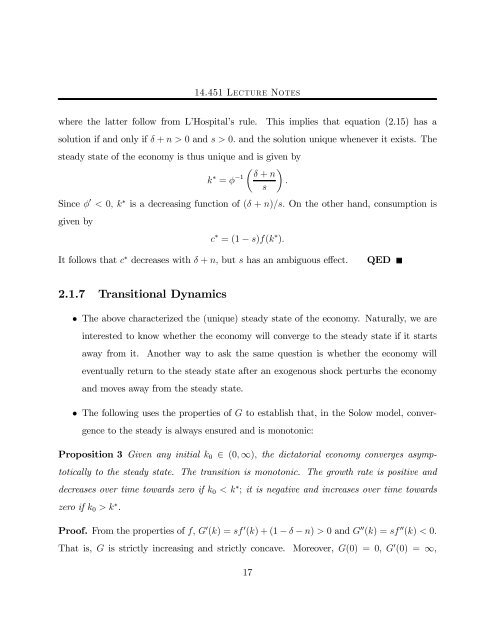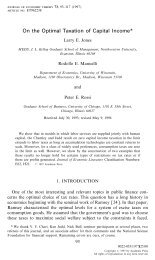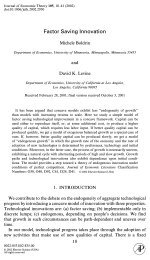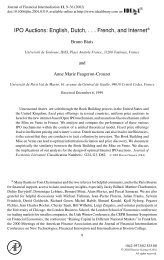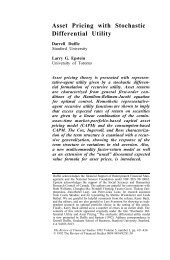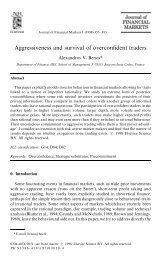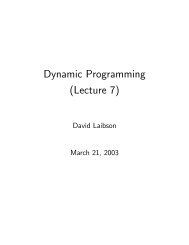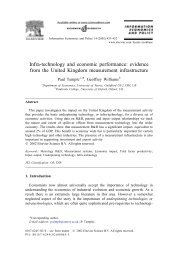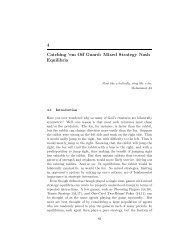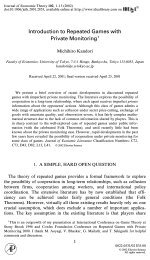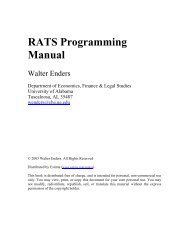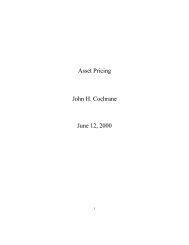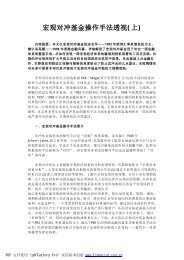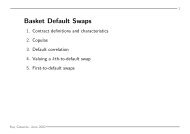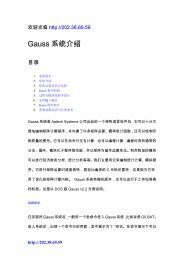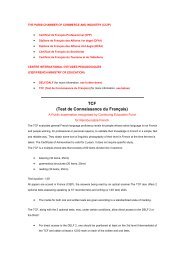14.451 Lecture Notes Economic Growth
14.451 Lecture Notes Economic Growth
14.451 Lecture Notes Economic Growth
You also want an ePaper? Increase the reach of your titles
YUMPU automatically turns print PDFs into web optimized ePapers that Google loves.
<strong>14.451</strong> <strong>Lecture</strong> <strong>Notes</strong><br />
where the latter follow from L’Hospital’s rule. This implies that equation (2.15) has a<br />
solution if and only if δ + n>0 and s>0. and the solution unique whenever it exists. The<br />
steady state of the economy is thus unique and is given by<br />
k ∗ = φ −1<br />
µ <br />
δ + n<br />
.<br />
s<br />
Since φ 0 < 0, k ∗ is a decreasing function of (δ + n)/s. On the other hand, consumption is<br />
given by<br />
c ∗ =(1− s)f(k ∗ ).<br />
It follows that c ∗ decreases with δ + n, but s has an ambiguous effect. QED<br />
2.1.7 Transitional Dynamics<br />
• The above characterized the (unique) steady state of the economy. Naturally, we are<br />
interested to know whether the economy will converge to the steady state if it starts<br />
away from it. Another way to ask the same question is whether the economy will<br />
eventually return to the steady state after an exogenous shock perturbs the economy<br />
and moves away from the steady state.<br />
• The following uses the properties of G to establish that, in the Solow model, conver-<br />
gence to the steady is always ensured and is monotonic:<br />
Proposition 3 Given any initial k0 ∈ (0, ∞), the dictatorial economy converges asymp-<br />
totically to the steady state. The transition is monotonic. The growth rate is positive and<br />
decreases over time towards zero if k0 k ∗ .<br />
Proof. From the properties of f, G 0 (k) =sf 0 (k)+(1− δ − n) > 0 and G 00 (k) =sf 00 (k) < 0.<br />
That is, G is strictly increasing and strictly concave. Moreover, G(0) = 0, G 0 (0) = ∞,<br />
17


